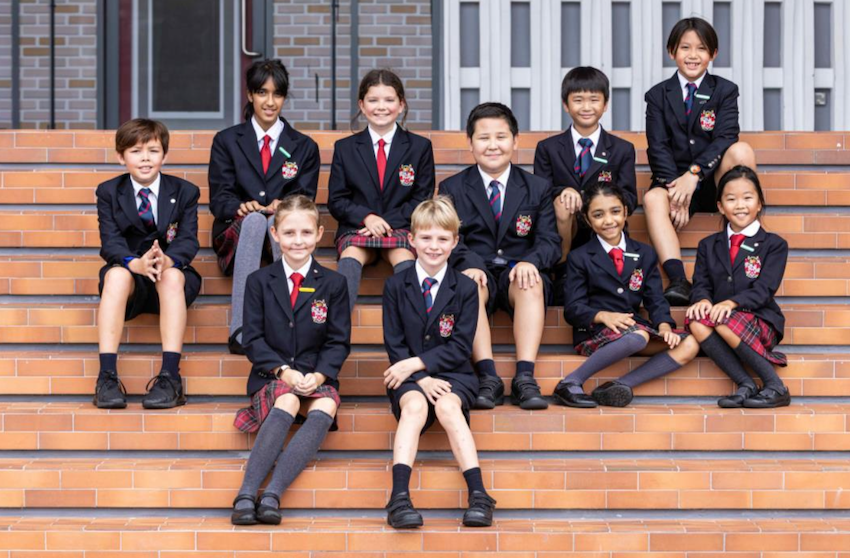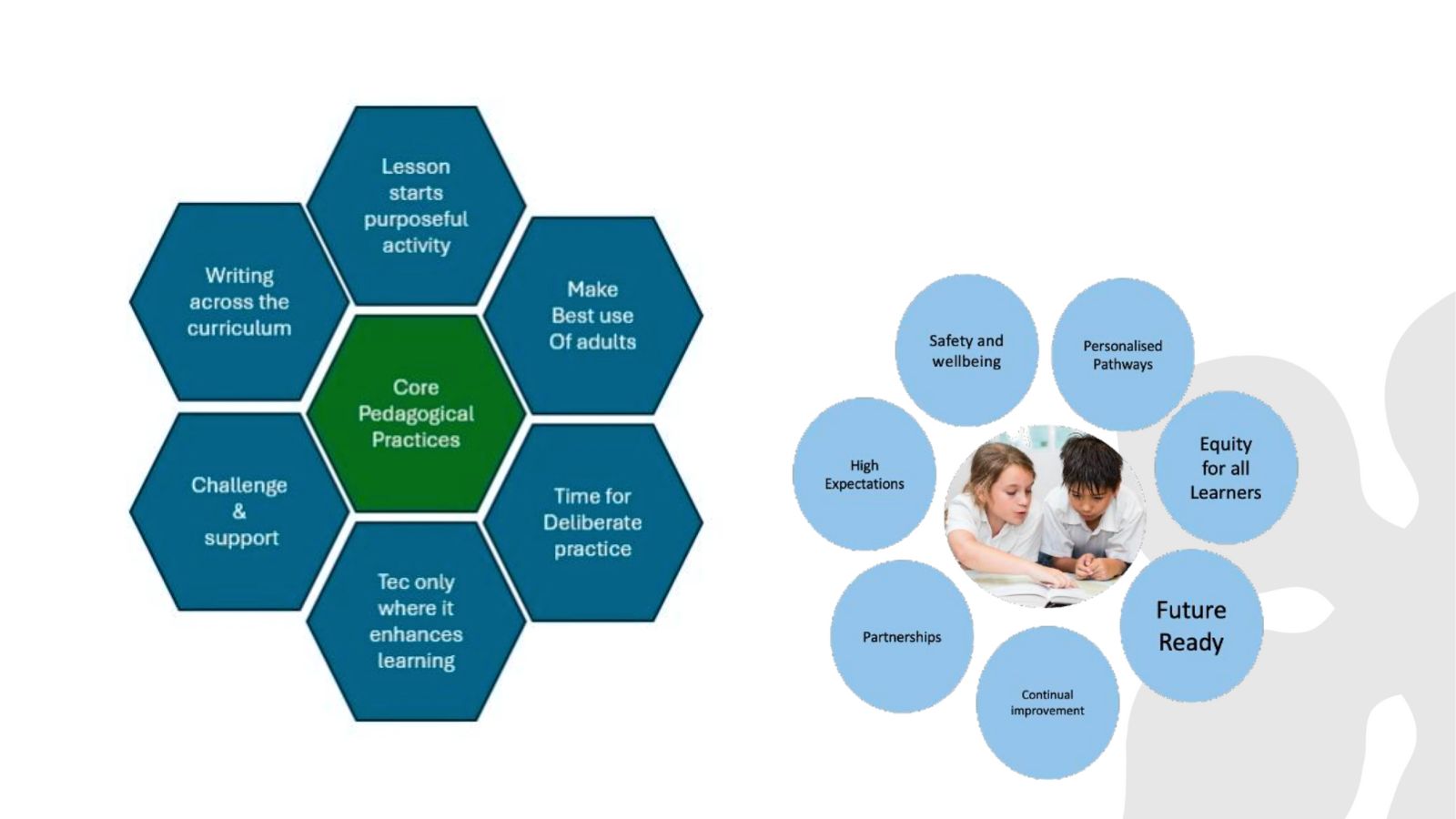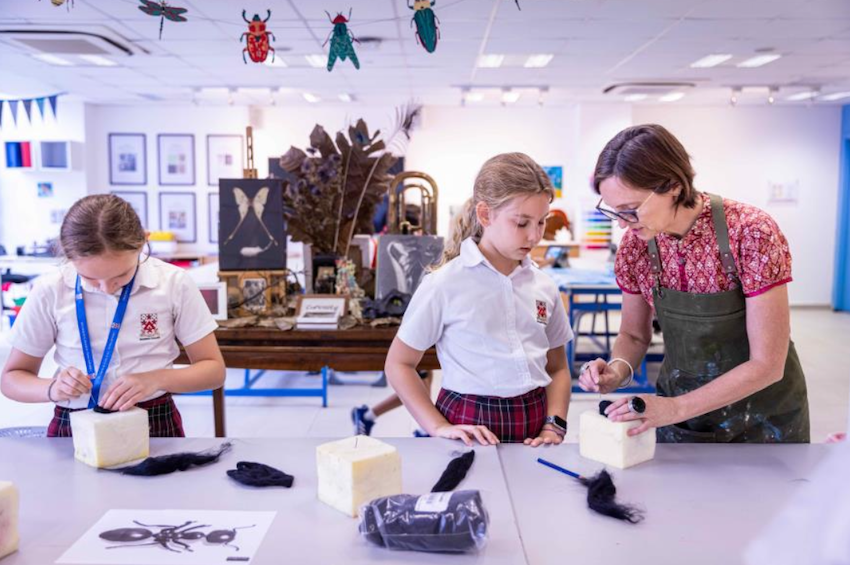The Dulwich Pedagogy Papers: Chapter Four
Chapter Four: A Window into Your Child’s Classroom – Our Junior School Programme
In the first chapter of our series, we discussed the importance of adapting education to the V.U.C.A. (Volatile, Uncertain, Complex, and Ambiguous) world, emphasising the need for critical thinking, problem-solving, and creativity in students to navigate the rapidly changing environment. In the second chapter, we compared education systems of the past with our current approach at Dulwich College (Singapore), highlighting our commitment to developing well-rounded individuals who are not only intellectually capable but also emotionally intelligent and culturally aware.
This chapter builds on that foundation by showcasing how our Junior School Programme is designed to foster these essential skills through personalised pathways, to prepare children for both the Senior School and the opportunities which lie beyond.
At Dulwich College (Singapore), we believe that learning is most effective when it is purpose-driven. The purpose of all that is taught should be shared with students, tailored to their unique needs, and contextualised within their lived experiences so they see it as relevant. When delivered through the security of positive, supportive relationships, the impact is even more powerful.
As with all areas of the College, Junior School’s learning programme is driven by our guiding statements, the first of which is wellbeing. A foundation of safety and wellbeing is essential for ensuring that every member of our community feels supported and equipped to thrive. Safeguarding and fostering positive relationships are central to our ethos and evidenced in the classroom on a daily basis. The Wellbeing Curriculum, delivered weekly, aligns with key calendar events and is brought to life by Junior School assembly themes to ensure relevancy to our learners.

We uphold the principle that every child will advance from their individual starting point and make progress at different rates across the curriculum. Our teachers use data from both standardised and formative assessments to tailor instruction to each child's specific needs. High-quality feedback and opportunities for students to select the direction of their learning cultivate a mindset geared towards lifelong learning and a passion for knowledge. Students are encouraged to excel in areas of personal interest, whether in core subjects or co-curricular activities.
We are blessed with a diverse community of learners, and we are dedicated to ensuring that all children can access the curriculum, engage in positive social interactions, and benefit from the full spectrum of College offerings. Our tiered support system starts in the classroom with our teachers accommodating a range of languages and learning styles. English as an Additional Language (EAL) and Additional Educational Needs (AEN) support is provided through differentiated activities, small group instruction, and the use of visual aids and technology.
The Junior School is fundamentally the central arch in a bridge that begins in DUCKS and spans beyond the Senior School into the future, and so future readiness is fundamental to the Junior School programme. We prepare students for future success by developing both subject-specific knowledge and conceptual understanding. Our curriculum incorporates opportunities for research skills, information literacy, and the use of technology as a learning tool. Engagement with visiting experts and participation in authentic collaborative projects enhance students' communication and presentation skills which are crucial to their ongoing education and the workplace. The visuals below illustrate the six key ingredients which are core to our pedagogical model:

At this age, students also significantly benefit from a triangle of relationships around their learning which includes the teacher, the parents and the student as important parts of that process.
Effective communication and collaboration between home and school are vital for fostering strong relationships. We maintain an open-door policy, conduct two Parent-Teacher Conferences per year, and provide regular written and electronic feedback to parents. Workshops and open classrooms invite parental engagement and support for their children's learning. Enrichment through out-of-classroom experiences significantly enhance learning as identified in Hattie (2021), when students were provided with an opportunity to visit the VR experience in Singapore, highlighting the international space station.
In a broader context, international education aims to develop students who are multilingual, multicultural, and possess global citizenship values. According to Öztabak (2022), international education programmes should be structured based on respect and equality, showing sensitivity to the culture of the countries in which they operate, and supporting students' development towards their own cultures. This is an aspect which is central to the Junior School programme thanks to each year group focusing on a cultural festival and the many opportunities to engage in international festivities organised by our Friends of Dulwich committee.

As testament to the strength of our learning programme, Junior School was recently accredited as ‘Best Primary School’ in the Which School Advisor’s Best Schools Awards (Singapore). We are thrilled by this recognition of how we successfully deliver a holistic primary education that blends academic excellence with a strong focus on pastoral care, student leadership, sports, the creative and performing arts and technology. Combining traditions of UK independent education with a modern approach and global outlook, the College offers a curriculum designed to meet the needs of its international community.
Growing up in a V.U.C.A world provides equally as many challenges as opportunities, and the flexible innovative programme delivered by the teachers in the Junior School supports children through this process and provides them with every opportunity to develop in these formative and vital years.





